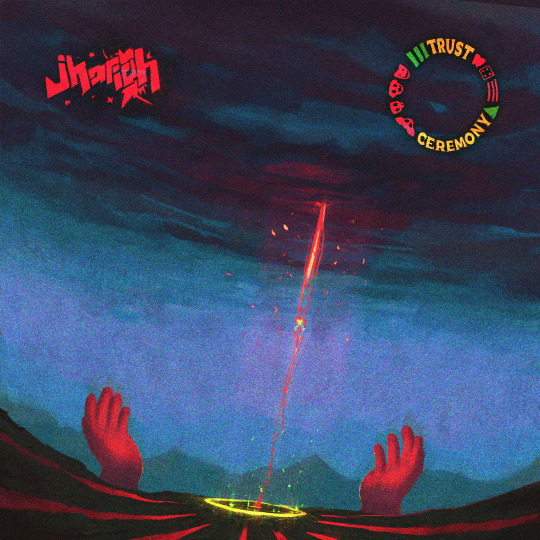#beginner guides
Explore tagged Tumblr posts
Note
Do you have any recs for beginners who want to write poetry? I love your blog so much!
there's a list of starter poetry recommendations for reading poetry here. For writing poetry I would recommend essays and nonfiction by poets: Upstream by Mary Oliver, Still Life with Lemons by Mark Doty, Now and Then: The Poet's Choice Columns by Robert Hass. If there are specific poets you like and admire, I would read their interviews to see how they themselves approach poetry and writing. I would also subscribe to Devin Kelly's Ordinary Plots substack, Padraig Ó'Tuama's Poetry Unbound (substack and podcast), and the On Being podcast's interviews with poets. There's also this section on The Poetry Society of America which features poets and writers interacting with either their own work, other's work, or simply discussing different aspects of writing and experiencing poetry.
I would also recommend really familiarising yourself with the technical aspects of poetry: poetic structures, rhyming schemes, language and all its textures etc., because those are the essential building blocks more than anything else. Practice writing poems following established formats: try your hand at an abcderian poem, or a sonnet, or a tanka, or a villanelle--the structural limitations are a good way to force yourself to really think about what you want to say and how you want to say it.
At the end of the day, the most important thing if you want to write is to read widely, and read often--and practice and practice and practice again. Learning to write anything is like training a muscle and you have to train and work it consistently. Hope this helps and best of luck with your writing endeavours anon 🤍
601 notes
·
View notes
Text
inexplicability/unknowability in art is not often understood as an intentional artistic decision, let alone respected as one. I'd almost call it entitlement on the part of audience, but it's not even that, really. it's a complete inability to ask - was this ever meant to be understood in full? is there a reason why it wouldn't be? is it uncomfortable to think about? maybe it is supposed to be uncomfortable to think about.
7K notes
·
View notes
Text
TSP FANDOM! ARTIST NEEDS YOUR HELP!
You may recognize @missazura from her art in The Stanley Parable: Ultra Deluxe.


She's amazingly skilled and dedicated, but she needs your help!
She needs to move into an apartment as quickly as possible. The weather in Malaysia is intense and the home she's lives in now cannot take it. Her home is damaged from termites, rot, and severe water damage.
Her computer equipment necessary to keep her job is at risk with every rain storm! She isn't paid a typical bi-weekly schedule and goes without money for weeks at a time. And even when she's paid, it's all spent on keeping the house her family lives in from going without power!!
OUR BASE GOAL IS 3,000 USD. EVERY DOLLAR COUNTS!
#the stanley parable#tspud#the beginner's guide#the stanley parable narrator#the stanley parable mod#the stanley parable ultra deluxe#stanley tsp#tsp the narrator#the narrator tsp#stannarrator#stanley parable#stanley parable fanart
2K notes
·
View notes
Text
Beginner’s Guide to Hellenic Polytheism
I KNOW this is a really long post but my intention was to just note down everything that I think is important for beginners and that’s A LOT. It took me forever to learn some of these things but they’re so important, so buckle in. I hope this helps some people.
If I’ve missed anything, please feel free to let me know what you’d like me to add. I’ve been working on this for two days, so if there are typos, I’m so sorry.
The sections I cover here are key terms, mythic literalism, deity work vs deity worship, FAQs and General Advice.
Some Key Terms
Hellenic Polytheism: Hellenic means Greek, and Polytheism means worshipping multiple gods. So, Hellenic Polytheism is the worship of the Greek Pantheon which is also referred to as the Theoi. The people who practice could be referred to as Hellenic Polytheists. Some also call themselves Hellenic Pagans, but not all people who practice Hellenic Polytheism consider themselves pagan.
Hellenistic: you may see the term ‘Hellenistic Polytheism’, but this is my PSA to ask people not to use that, as it’s incorrect. Hellenistic refers to a specific period of Andient Greece, from 323-32 BC, and your worship is almost definitely not specifically focused on that period. Additionally, here is a post by a Greek person on why ‘Hellenism’ and ‘hellenismos’ are disrespectful.
Ouranic: this is the term for the heavenly gods. Be aware that there is some overlap between Ouranic and Chthonic deities. Whether a deity is Ouranic or Chthonic will effect things like prayer position (palms up for Ouranic) and whether offerings can be eaten or drank (yes for Ouranic)
Chthonic: this is the term for the underworld gods. Be aware that there is some overlap between Ouranic and Chthonic deities. Whether a deity is Ouranic or Chthonic will effect things like prayer position (palms down for Chthonic) and whether offerings can be eaten or drank (no for Chthonic) side note - when it comes to hero worship, I personally treat them as if they’re chthonic.
Kharis: this means reciprocity, and also refers to the relationship formed between us and the gods. Arguably the most important aspect of Hellenic Polytheism is that when you ask something of a deity, you must give an offering in return. Size of what you’re asking for should correspond to size of the offering, or if you’ve given many little offerings without asking for anything you can use that as why you should be given the Big Thing.
Xenia: guest-friendship, hospitality. The idea that any stranger could be a God in disguise, so treat everyone respectfully. It’s an Ancient Greek social custom that a lot of Hellenic Polytheists see as important today. Simply put, in modern times this most often just means being kind to strangers. There’s a lot more to it than that though, so look here. Know that Xenia is a two-way thing, so you have to be generous to your guests but they must also respect your home.
Eusebeia: basically, piety. Respecting the Gods. This is really the only ‘rule’ of Hellenic polytheism. There’ll be different ideas of what is considered respectful, but as long as you have good intentions and don’t do anything you KNOW would be offensive, you’re okay. Don’t insult the gods (any of them), don’t ask for anything without offering something else, and don’t treat yourself as equal to or higher than the theoi.
Hubris: excessive pride or dangerous overconfidence, often the fatal flaw of a lot of Greek heroes in mythology. Specifically, this is when you act better than or equal to the gods. You are not.
Libations: a type of offering, in the form of a liquid. Usually poured on the ground but can be drank (unless it’s to a chthonic deity) if you’re a closeted Hellenic polytheist who can’t just pour some liquid on the floor every time you want to offer it. My advice for food offerings/libations to chthonic deities if you’re not openly a hellenist is to offer leftovers, rotting food, or something you otherwise know will go to waste.
Altar: traditionally a place used to put physical offerings and food offerings for deities. Some people have an altar to each deity, some people have one altar for all their deities. These can be as big or as small as you want. People may use shelves, drawers, boxes, windowsills, etc, and I don’t even use mine for food offerings, only for physical ones because I usually eat the food offering (I don’t like the idea of wasting food). My altars also just serve as a dedicated space for that deity in my life.
Hero worship: this is the worship of ‘heroes’ in Greek mythology, which includes literally any mortal. For example, I worship Odysseus of Ithaca, Penelope of Ithaca, Helen of Sparta, and Tiresias of Thebes. I’ve been asked a lot about how hero worship differs from deity worship, and you can find that answer here.
Devotee: there is a lot of disagreement on what the difference between a devotee and worshipper is, but for me, I’m devoted to Athena as I feel I have the closest bond with Her of all my deities and I honour Her the most. This partly comes from my feeling that She has been with me for much longer than I’ve been aware of Her presence, and that also so much of who I am and what I value comes under Her domains.
Patron: this basically means that if part of your identity comes under the domain of a deity, then that deity is your patron. There can be occupational patrons (like Hermes is the patron of merchants) or to do with things like gender (Hera is a patron for women. Yes this includes trans women, transphobes are not welcome here.) You can have more than one patron, and you don’t need to worship all of the deities who would be considered your patron.
Epithets: these are titles given to deities. There are two types - cult epithets, which describe the aspect of a deity you’re focusing on (like Athena Ageleia, meaning ‘Protector of the People’) since they have a lot of domains and it’s important in prayers to specify what you want. Then there’s poetic epithets, which are adjectives, often used to compliment a deity. I like using these to make my prayers seem more sophisticated to be honest (example: white-armed Hera)
Unverified Personal Gnosis: gnosis is spiritual knowledge. If it’s unverified, that means that it has no basis in historical sources as far as the person is aware, and they don’t know anybody else who has the same experience. You will often see this abbreviated as UPG. Personally, I think UPG is really valid, considering a lot of things are unknown to us due to the loss of sources overtime.
Shared Personal Gnosis: gnosis is spiritual knowledge. Like UPG, Shared Personal Gnosis (often abbreviated as SPG) doesn’t have any historical backing as far as the people who believe it are aware, but it is shared by multiple different people and therefore seen by some as more valid than UPG (though I’d argue that all SPG is UPG before you know that other people agree)
Verified Personal Gnosis: gnosis is spiritual knowledge. It being verified means that there are historical sources to back up the belief, and this is commonly abbreviated to VPG. You are more likely to come across the terms UPG than SPG or VPG, and most of what Helpol people on tumblr discuss is UPG, even if they don’t state that directly.
Reconstructionist: these are people who try to ‘reconstruct’ the ancient religion, recreating ancient rituals as best they can and doing things as close as they can get to how the ancient Greeks did based on our historical sources. An important note here is that we will never be able to do this perfectly and that’s okay. For example, I would hope none of us are making animal sacrifices.
Revivalist: these are people who try to recreate the ‘spirit’ of the religion, though not with the exact practices that the Ancient Greeks used. Revivalists are more concerned with the values and beliefs of the ancient religion than they necessarily are with how it was practiced. I personally feel like I fall somewhere between the two, but I also think both are really valid!
Mythic Literalism
Mythic Literalism is the idea that the stories we see in any mythology actually occurred. In Hellenic Polytheism, this is not how we tend to look at the Greek myths. And it’s not how the ancients saw them either.
Greek mythology has always been interpreted as symbolic. For example, Hades kidnapping Persephone is mostly accepted to be about mothers in Ancient Greece being separated from their daughters once they marry. It does not mean that Hades, the God, kidnapped Persephone, the Goddess, and that people who worship Hades are evil because Hades is a kidnapper. This myth can also be interpreted through the lens that death separates families.
This is important because the Gods all do things that are, by today’s standards, incredibly immoral - and a lot of them were even immoral in antiquity. It is important to not take the myths literally to avoid feelings of guilt over worshipping something horrific.
And yes, this applies to Zeus. He is not a rapist, He’s a male fertility god. In myths he does bad things because he represents kings and kings can abuse their power. Things like that.
But it’s still good to research the myths! It’s good to learn the ways in which these deities were understood and what their domains can represent. Myths also help us to feel more familiar with our deities. Additionally the myths tell us not to be hubristic, and things like the Iliad tell us about Oaths and Offerings and Xenia. These are important parts of helpol.
Deity Work vs Deity Worship
I’m going to preface this section by saying that I worship deities, I don’t work with them, so even though I’m doing research on this please take everything I say about deity work with a grain of salt and note that the rest of this post might apply more to worship, because that’s what I’m familiar with. Lastly, my intention here is not to place a value judgement on either type, I just want to try and make a full explanation for anyone out there looking for one, since I’ve found it to be kind of difficult to find.
From my understanding, deity work is common among witches, and usually involves asking a deity to help with your spells or other forms of magick. When you work with a deity, you are asking them to mentor you in a sense, and there’s often a specific goal in mind that they’re hoping to achieve with help of the deity. Additionally, because of that goal-oriented relationship, deity work has deadlines(?). Like, once you’ve achieved the goal you had, the deity will stop working with you
There are similarities, as both seem to involve reciprocity and offerings, and both involve cultivating a relationship with deities, even if the nature of that relationship and the reason for offering is different.
Deity worship doesn’t have a set end-goal. You CAN stop actively worshipping a deity, but this doesn’t usually come after a specific goal is achieved because there isn’t a goal in mind. Worship is more about honouring the deity. Khakis is built out of admiration, respect and love for the deity. This is why we pray, make offerings, etc. it’s all to honour the gods. We do ask for things in deity worship, but that’s not the entire point like it is for deity work.
FAQs
Do I need to be called to worship/work with a deity?
Nope! You are 100% allowed to reach out first. You can do that by praying or making an offering. Remember to research the deity first, so you know what epithets to use, know what symbols they’re associated with, have ideas for offerings, etc. Also, if a deity calls to you, you are not obligated to worship them. Acknowledge them and move on if you don’t have time, energy, or interest in worshipping them at that time.
Where can I find information on deities?
The main site that I think everyone uses is theoi.com, which has really in-depth pages on a lot of deities, with their myths, lists of epithets, family trees, etc. it’s a really useful resource!
Do I need an altar?
No. They’re nice to have but you don’t need one straight away. It took me two years of worshipping to get any altars, and even now I don’t really use them how you’re ‘supposed’ to.
Are there any sins in Hellenic Polytheism?
No, just don’t disrespect a god (don’t disrespect any of them, even the ones you don’t worship should be respected). Also don’t show hubris.
Deity X and Deity Y don’t get along, but I want to worship both, what do I do?
Disregard mythic literalism and remember this is a polytheistic religion. The gods know they are not the only god you will be worshipping, and they are chill with that. If you really want, you can separate their altars if you have an altar per deity, but it’s up to you completely.
Other General Advices
This post is a starting point, nothing here is very in-depth. Do more research if anything on here is still confusing to you. Feel free to ask people here on tumblr, I’m sure most of us would be happy to help.
Don’t believe everything you see on tiktok/tumblr. We’re all still learning, a lot of us are wrong about stuff. Do other research and let yourself form your own beliefs. As I’ve said, even parts of this post should be taken with a grain of salt. I’m no expert, I just want to try to help.
If you’re going to make your own posts about helpol stuff, advice I’ve seen before that really stuck with me is ‘keep some things scared’. You don’t have to post everything. I, at the moment, don’t post my prayers or photos of my altars. Those things are what I keep scared, you should have your own things. They don’t have to be the same as mine.
You have nothing to be afraid of. The gods can be intimidating when you’re starting out, but they know we don’t have as much readily available information about this stuff as the ancient greeks did. They also know you’re new, and they will be patient with you. Don’t be scared.
You can offer anything. Digital offerings are as valid as physical offerings. Devotional acts are valid too.
Know that you will never be done learning. Accept this and commit to trying to learn anyway.
Know how to tell signs from the gods apart from just General Happenings of the world. Here is a good post on that. I have a series on my blog tagged #signs from deities, to show the kinds of things I personally recognise to be signs and to show how frequently/infrequently those can occur. I would suggest keeping your own record of those, whether or not you share it is up to you. The reason is to reflect on your journey and, if you ever doubt your gods, you can look at those lists to remind yourself of how they’ve been there for you previously.
Doubt is healthy, it’s okay to doubt things. Don’t feel bad for this, the gods understand. Let yourself question everything you feel the need to question.
Similarly, anger is healthy. It’s okay to be angry at the gods, but don’t disrespect them because you’re upset. Handle your anger well. You won’t get punished for being upset.
The Hellenic Gods aren’t generally believed to be all-knowing, however it is believed that they can hear us when we call their names, which is why prayers start with invocation of a deity’s name and an epithet.
#hellenic polytheism#hellenism#hellenic deity worship#theoi#hero worship#deity work#hellenic paganism#kharis#baby hellenic polytheist#beginner’s guide to helpol#greek polytheism#polytheist#mythic literalism#hellenismos#resources
1K notes
·
View notes
Text

oc studies
#I don't usually post sketch dumps outside of p*treon but this one was such fun#beginner's guide to heresy#kafka#steel#mortar#levi#ron#myart#scraps
571 notes
·
View notes
Text



Here are some painting tips, as promised. I hope they will help beginner artists!
Composition
Position of characters on the sheet
Choose the location of your character to be beneficial to the appearance of the art in general, you can accentuate the important places where the viewer should look first by using perspective and composition.
Tone sketch
Set the lights based on references, but adjust to your own, favourable lighting.
Contrasts come in many forms. Contrast in color (warm and cold), values (dark and light), shapes soft and hard, straight and curve, etc.
Less is better. Work on the details of the most important part of your work while cutting down everything else. If you do strong detail in one place, don't forget to add looser detail in another so the viewer's eye can rest. For example: If you are detailing a portrait, don't detail the background as much. Next to a place of high detail, there should be a place of low detail so that the picture does not look overloaded.
All in all, you can twist and break perspective, anatomy and shapes to convey your idea better. No rules are made of steel, they should support your imagination, not restrict it
Anatomy
Break down objects into simple shapes to arrange them in space.
Check references! plasticity comes first, then structure (muscles are important, but proportions and line of movement come first).
Take a photo of yourself, you will be able to understand how to perform your pose naturally. Color/light.
Light is part of the composition, put it in a way that highlights the important things. Air perspective
General rules of composition. From the general to the particular, first prepare the general scene, correctly place contrasts and accents, make everything important in contrast, and take the unimportant into an aerial perspective. (aerial perspective, or atmospheric perspective, refers to the technique of creating an illusion of depth by depicting distant objects as paler, less detailed, and usually bluer than near objects.)
When all the points are ready we can start working out the details.
When all the details are finished again it's back to the overall picture, looking at it from a distance. Check if the accents you wanted to draw attention to are working. They should have the highest contrast. Check if the contrast is not created by objects on the edges, where you don't want the viewer to pay attention. For example, if you are painting a portrait then the focus should be on the face and not on the details of the clothes or details in the background. (You can always convert the image to black and white and check the contrast)
Save the stages of your work to check against the initial idea and see what things have changed for better or worse!
#digital art#art tips#beginner artist#small artist#digital artist#art advice#art tutorial#art guide#step by step#drawing basics
695 notes
·
View notes
Text




Silly images silly images silly images
#my art#moist von lipwig#going postal#adora belle dearheart#vetinari#traced#meme#song is#Enter: A Beginner's Guide To Faking Your Death
313 notes
·
View notes
Text
September 2024 Witch Guide
New Moon: September 2nd
First Quarter: September 11th
Full moon: September 17th
Last Quarter: September 24th
Sabbats: Mabon- September 22nd
September Harvest Moon
Also known as: Autumn Moon, Child Moon, Corn Harvest Moon, Falling Leaves Moon, Haligmonath, Leaves Turning Moon, Mating Moon, Moon of Brown Leaves, Moon When Dear Paw the Earth, Rutting Moon, Singing Moon, Wine Moon, Witumanoth & Yellow Leaf Moon
Element: Earth
Zodiac: Virgo & Libra
Nature spirts: Trooping Faeries
Deities: Brigid, Ceres, Chang-e, Demeter, Freya, Isis, Depths & Vesta
Animals: Jackal & snake
Birds: Ibis & sparrow
Trees: Bay, hawthorn, hazel & larch
Herbs: Copal, fennel, rye, skullcap, valerian, wheat & witch hazel
Flowers: Lily & narcissus
Scents: Bergamot, gardenia, mastic & storax
Stones: Bloodstone,carnelian, cat's eye, chrysolite, citrine, iolite, lapis lazuli, olivine, peridot, sapphire, spinel(blue), tourmaline(blue) & zircon
Colors: Browns, dark blue, Earth tones, green & yellow
Issues, intentions & powers: Confidence, the home, manifestation & protection
Energy: Balance of light & dark, cleaning & straightening of all kinds, dietary matters, employment, health, intellectual pursuits, prosperity, psychism, rest, spirituality, success & work environment
The full Moon that happens nearest to the fall equinox (September 22nd or 23rd) always takes on the name “Harvest Moon.” Unlike other full Moons, this full Moon rises at nearly the same time—around sunset—for several evenings in a row, giving farmers several extra evenings of moonlight & allowing them to finish their harvests before the frosts of fall arrive.
• While September’s full Moon is usually known as the Harvest Moon, if October’s full Moon happens to occur closer to the equinox than September’s, it takes on the name “Harvest Moon” instead. In this case, September’s full Moon would be referred to as the Corn Moon.
This time of year—late summer into early fall—corresponds with the time of harvesting corn in much of the northern United States. For this reason, a number of Native American peoples traditionally used some variation of the name “Corn Moon” to refer to the Moon of either August or September.
Mabon
Known as: Autumn Equinox, Cornucopia, Witch's Thanksgiving & Alban Elved
Season: Autumn
Element: Air
Symbols: Acorns, apples, autumn leaves, balance, berries, corn, cornucopia( Horn of Plenty), dried seeds, equality, gourds, grains, grapes, ivy, pine cones, pomegranates, vines, wheat, white roses & wine
Colors: Blue, brown, dark red, deep gold, gold, indigo, leaf green, maroon, orange, red, russet. Violet & yellow
Oils/Incense: Apple, apple blossom, benzoin, black pepper, hay/straw, myrrh, passion flower, patchouli, pine, red poppy & sage
Animals: Dog & Wolf
Birds: Goose, hawk, swallow & swan
Stones: Agate, amethyst, carnelian, lapis lazuli, sapphire, yellow Agate & yellow topaz
Food: Apples, blackberries, blackberry wine, breads, carrots, cider, corn, cornbread, grapes, heather wine, nuts, onions, pomegranates, potatoes, squash, vegetables, wheat & wine
Herbs/Plants: Benzoin, bramble, corn, ferns, grains, hops, ivy, milkweed, myrrh, sage sassafras, Salomon's seal, thistle, tobacco & wheat
Flowers: Aster, heather, honeysuckle, marigold, mums, passion flower, rose
Trees: Aspen, cedar, cypress, hazel, locust, maple, myrtle oak & pine
Goddesses: Danu, Epona, Inanna, Ishtar, Modron, Morgan, The Morrigan, Muses, Pomona, Persephone, Sin, Sophia & Sura
Gods: Bacchus, Dionysus, Dumuzi, Esus, The Green Man, Hermes, Mannanan, Thor & Thoth
Issues, Intentions & Powers: Accomplishment, agriculture, balance, goals, gratitude & grounding
Spellwork: Balance, harmony, protection, prosperity, security & self-confidence
Activities:
•Scatter offerings in a harvested fields & Offer libations to trees
• Decorate your home and/or altar space for fall
• Bake bread
• Perform a ritual to restore balance and harmony to your life
• Cleanse your home of negative energies
• Pick apples
• Collect fall themed things from nature like acorns, changing leaves, pine cones, ect)
• Have a dinner or feast with your family and/or friends
• Set intentions for the upcoming year
• Purge what is no longer serving you & commit to healthy changes
•Take a walk in the woods
• Enjoy a pumpkin spice latte
• Donate to your local food bank
• Gather dried herbs, plants, seeds & pods
• Learn something new
• Make wine
• Fill a cornucopia
• Brew an apple cinnamon simmer pot
• Create an outdoor Mabon altar
•Adorn burial sites with leaves, acorns, & pinecones to honor those who have passed over & visit their graves
The name Mabon comes from the Welsh/Brythonic God Mabon Ap Modron, who's name means "Divine/great Son", However,there is evidence that the name was adopted in the 1970s for the Autumn Equinox & has nothing to do with this celebration or this time of year.
• Though many cultures see the second harvest (after the first harvest Lughnasadh) & Equinox as a time for giving thanks before the name Mabon was given because this time of year is traditionally when farmers know how well their summer crops did & how well fed their animals have become. This determines whether you & your family would have enough food for the winter.That is why people used to give thanks around this time, thanks for their crops, animals & food
Some believe it celebrates the autumn equinox when Nature is preparing for the winter months. Night & day are of equal legth & the God's energy & strength are nearly gone. The Goddess begins to mourn the loss she knows is coming, but knows he will return when he is reborn at Yule.
Related festivals:
• Sukkot- Is a Torah-commanded holiday celebrated for seven days, beginning on the 15th day of the month of Tishrei. It is one of the Three Pilgrimage Festivals on which Israelites were commanded to make a pilgrimage to the Temple in Jerusalem. Originally a harvest festival celebrating the autumn harvest, Sukkot’s modern observance is characterized by festive meals in a sukkah, a temporary wood-covered hut, celebrating the Exodus from Egypt.
• Mid-Autumn festival- September 17th
Is also known as the Moon Festival or Mooncake Festival. It is a traditional festival celebrated in Chinese culture, similar holidays are celebrated by other cultures in East & Southeast Asia. It is one of the most important holidays in Chinese culture; its popularity is on par with that of Chinese New Year. The history of the Mid-Autumn Festival dates back over 3,000 years. On this day, it is believed that the Moon is at its brightest and fullest size, coinciding with harvest time in the middle of Autumn.
During the festival, lanterns of all size and shapes – which symbolize beacons that light people's path to prosperity & good fortune – are carried & displayed. Mooncakes, a rich pastry typically filled with sweet-bean, egg yolk, meat or lotus-seed paste, are traditionally eaten during this festival. The Mid-Autumn Festival is based on the legend of Chang'e, the Moon goddess in Chinese mythology.
• Thanksgiving- This is a secular holiday which is similar to the cell of Mabon; A day to give thanks for the food & blessings of the previous year. The American Thanksgiving is the last Thursday of November while the Canadian Thanksgiving is celebrated in October
• The Oschophoria- Were a set of ancient Greek festival rites held in Athens during the month Pyanepsion (autumn) in honor of Dionysus. The festival may have had both agricultural and initiatory functions.
-Amidst much singing of special songs, two young men dressed in women's clothes would bear branches with grape-clusters attached from Dionysus to the sanctuary of Athena Skiras & a footrace followed in which select ephebes competed.
Ancient sources connect the festival and its rituals to the Athenian hero-king Theseus & specifically to his return from his Cretan adventure. According to that myth, the Cretan princess Ariadne, whom Theseus had abandoned on the island of Naxos while voyaging home, was rescued by an admiring Dionysus; thus the Oschophoria may have honored Ariadne as well. A section of the ancient calendar frieze incorporated into the Byzantine Panagia Gorgoepikoos church in Athens, corresponding to the month Pyanopsion (alternate spelling), has been identified as an illustration of this festival's procession.
Sources:
Farmersalmanac .com
Llewellyn's Complete Book of Correspondences by Sandra Kines
Wikipedia
A Witch's Book of Correspondences by Viktorija Briggs
Encyclopedia britannica
Llewellyn 2024 magical almanac Practical magic for everyday living
#wheel of the year#harvest moon#September 2024#witch guide#autumn equinox#Mabon#witchblr#wiccablr#paganblr#spirtual#grimoire#book of shadows#witch tips#beginner witch#baby witch#witch community#witchcraft#witchcore#witches of tumblr#tumblr witches#second harvest#moon cycle#witch#witchy stuff#witchy things#witchyvibes#GreenWitchcrafts#moon magic#traditional witchcraft#witches
448 notes
·
View notes
Text

How to Study Resources
Many people in the modern day pagan/polytheist communities are young. As such, a majority of them are neurodivergent, like I am. For me, that means a majority of the language used in resources is difficult to understand. This was originally going to be a post about that, but the more I wrote, the more I realised that many people, neurodivergent or not, just... don't know how to study resources. So, if you are someone that also struggles, I now present to you... my full guide on how to study resources.
Little disclaimer: I myself am a hellenic polytheist, but this guide is for anyone that struggles with understanding information from resources, whether you are a hellenic polytheist, norse polytheist, kemetic polytheist, etc. Though do understand that I am writing from the perspective of a hellenic polytheist, so I am bound to make mistakes when it comes to religions I am less educated on. You are always welcome to adjust anything I say here to fit your own religion accordingly.
Let's get started.

Firstly, you have to find resources. Many people happen to get stuck here, unfortunately.
How do I know what to research to begin with? When starting out, the general consensus among the polytheist/pagan communities is to research the related historical practice. How the deities were worshipped, what contexts they were worshipped in, the history of the deities, etc etc... all of these are very important factors to consider as a beginner. Only by knowing the history can you then delve deeper into specific terms and specific paths that may be right for you!
How do I find resources? Unfortunately, a lot of resources are behind paywalls or just plain hard to find. Here is a list of websites that I personally use and recommend:
scholar.google.com
academia.edu
pdfdrive.com
library.memoryoftheworld.org
libcom.org
libretexts.org
standardebooks.org
By the way, just a reminder that if you find a resource but there is a pesky paywall in your way, you can probably find it on archive.org for free!
How do I choose a resource though? If you are part of hellenic polytheism, then theoi.com is a great resource, but I always like to add primary sources into my research + not everyone reading this will be part of helpol. Try to find primary sources, first and foremost. Then read historical accounts. Then read secondary sources. Also, make sure your author is reliable! (that link is only for hellenic polytheism though, apologies. If you are not part of hellenic polytheism, then looking into who the author is/was as a person and what sort of contributions they made and beliefs they held never failed me personally!)

Found your resource? Made sure the author is reliable? Wonderful! Now what?
This is usually where the procrastination hits for me. Either that, or I get hyperfocused for a while but never complete it and then lose interest.
To avoid that, break things down and establish a routine. You do not have to finish a book in a day, or understand everything you read straight away. Setting those kinds of expectations for yourself will only make things so much more difficult.
Instead, make a routine for yourself. Outlined below is my routine:
Getting into the mindset. I always like to get myself into the mindset of studying by praying, whether this is studying for school or studying a resource. Since my entire life is devoted to lord Apollon, I pray to Him for it. However, if I am researching a specific god, I will typically pray to them instead. However, sometimes I do not have the spoons to write out a prayer, so I typically just adjust my surroundings instead. Turning my LED lights to a warmer colour and putting on some lofi music usually helps me! The studyblr community has great tips for this part! I also recommend I Miss My Cafe.
Reading. First, I try to read without annotating or taking notes. This is the time to take in the information, to try and grasp what I am reading. This is usually the most difficult part for me, because a lot of academic sources tend to use advanced language and sentence structures that are difficult for me to understand. Unfortunately, the only tip I have for this part is to read as slowly as you need. Do not be ashamed for taking your time. Typically, I only like to read one paragraph before I move onto the next step.
Annotation. This is where I re-read the paragraph I just read. Typically, I like to re-word the paragraph in a simpler way for me to understand. Sometimes I notice little patterns that may connect back to something I've read prior, whether in another book or earlier in the same book. When that happens, that is something I add too! Remember, you do not have to annotate. If it makes it easier, then perfect! If it does not, discard it.
Consult study tools. This is where I cross-reference with other resources. This is how the entire process repeats again. Though, you do not just have to use books for this part! YouTube videos, podcasts, online resources, etc etc...these always help too!
Application. After vetting the information, consider how it would apply to your life, if at all.
Of course, that's just my routine. You are always welcome to use it, but I also greatly encourage you to create your own routine so that you can cater it to your learning style!
I also recommend setting a time limit for yourself. If you have not completed a chapter within the time limit, that is okay! The most important thing about researching is making sure you are not guilting yourself into biting off more than you can chew. Take your time, you have a lot of it.

Research is vital to religions like ours, and research should be something everyone can do! Just because you may need some accommodations does not make you any less intelligent. We all learn differently. That is okay.
I hope this post can serve as something helpful for those who struggle in this area, and as a reminder that you are not alone in your struggles. If you have any questions or would like further clarification on some points, feel free to reach out!
Xaire ♡
#guides ୨୧#beginners ୨୧#helpol#norsepol#kempol#resources#polytheism#hellenic polytheism#norse polytheism#norse paganism#kemetic polytheism#kemetic paganism#kemetism#hellenic worship#kemetic worship#norse heathen#helpol resources#helpol research#demonolatry#theistic satanism#luciferian#luciferianism
281 notes
·
View notes
Text

Some indie game snippets in pixels
From top left:
Chants of Sennaar
Hollow Knight
GRIS
The Beginner's Guide
Genesis Noir
Rain World
Transistor
Tunic
Also bonus fox:

I recently finished Tunic so this little guy is kinda living in my brain right now
#my art#pixel art#fanart#chants of sennaar#hollow knight#gris#gris game#the beginner's guide#genesis noir#rain world#transistor#transistor game#tunic#tunic game#72254
210 notes
·
View notes
Text











Fanfic Classics Series ⏳🪐🌌 This batch of fanfiction deals with the multiverse!!! Time travel!!! Imminent thoughts about life and death!! Past lives and dreams of a future together — get ready to witness a love for the ages.
the earth from a distance by spqr
A Beginner’s Guide to the Afterlife by mcsyndrome
Us, infinite (unfortunately) by @thecouchsofa
"An Emerald In The Sky" by @corvuscrowned
In Every Universe by @skeptiquewrites
Our Little Life by @tackytigerfic
Dwelling by aideomai
there will be time, there will be time by @amywaterwings
Harry Potter and the Future He Doesn't Really Want, Thanks. by orphan_account
Everything is Relative to You by @thehoneybeet
The Star Splitter by @oflights
art credits + some cover commentary under the cut :)
I had a lot of fun finding/using artworks with circles, lines, and shapes to symbolize different worlds/universes and/or the passage of time...
Artworks used, in order:
"Several Circles" by Wassily Kandinsky (1926)
"To all appearances, it was a hand of flesh and blood just like my own" by Odilon Redon (1896) — A ghostly hand that fits the plot. The artwork's title goes with the fic so well too...
"(#2) (from series, Quantum)" by Garo Antreasian (1966)
"The story of the sun, moon, and stars (1898)" by Agnes Giberne — inspired by the summary "Somewhere along the way, Draco realizes he's been thinking in lines, when he should have been thinking in circles." The original artwork comes with a caption 'Stars whose distances are well-known'... I really feel that it fits since Draco was named after a constellation... Also, the star-circles have numbers on them, which could be interpreted as H/D through different ages...
Max Brückner’s Collection of Polyhedral Models (1900) — Exploring different parallel universe versions of yourself... the more things change, the more they stay the same.
"Construction (SM lg71)" by László Moholy-Nagy (1924) — some mild spoilers for the fic! inspired by the phrases "...plot a path through the many universes such that he would never die." / "flickering through timelines? Just getting glimpses, really" .
"Fish Magic" by Paul Klee (1925)
"The Terrace at Saint-Germain, Spring" by Alfred Sisley (1875)
"Arrival of the Normandy Train, Gare Saint-Lazare" by Claude Monet (1877)
"Charing Cross Bridge: Fog on the Thames" by Claude Monet (1903) — referenced in the fic. i try to pay attention!
"Boy with Kite" by Candido Portinari (1947) — Harry is a precious little lamb. more elaboration here
i’ve been making penguin classics-style covers for fics i have saved on my kindle, as inspired by zeziliazink and bubu0h’s works!
#taking you guys through my ao3 bookmarks#please read these (n give kudos and a heartfelt comment after)#kiss my covers#fanfic covers#drarry fanfic#hpdm#fanfic book covers#drarry book covers#harry x draco#drarry fic recs#hpdm fics#aideomai#spqr#tackytiger#skeptique#corvuscrowned#honeybeet#oflights#seefin#thecouchsofa#waterwings#mcsyndrome#kiss my recs#Dwelling#The Earth from a Distance#A Beginner's Guide to the Afterlife#There Will Be Time There Will Be Time#Us Infinite (Unfortunately)#public domain art#kiss with a list
340 notes
·
View notes
Note
how do I improve my writing? I've always felt this deep inside me that I wanted to write, I wanted to express my feelings somehow with words but I don't know how to. It's like I cannot find the right words. Can you please give me some advice :(
There's been a few different versions of these over the years here, here, here and here so hopefully that will help you a little anon.
I think the only thing I can add is that learning to express your thoughts and your feelings--in any form, really--is not necessarily an innate skill but something you learn and improve on through practice. This means you will fumble--a lot. This means the words will feel clunky and inadequate--a lot. This means you will feel like you try your best to say something and wind up saying nothing--a lot But it is a muscle, in the end. And like all muscles you have to learn to guide it through a series of movements and practices until they become a little more intuitive, or even just familiar. The more you put yourself through these practices and the more you acquaint yourself with the various tools involved (reading, writing, experimenting with your writing) the more you will have at your disposal to try and put together the things you want to say 💗
159 notes
·
View notes
Text

am I going insane.

how have I not noticed this before.
160 notes
·
View notes
Text










Jhariah album/singles art (2018-2024)
#jhariah art#jhariah#GODDD THESE ARE SOO GOOD I NEED TO MAKE SOMETHING WITH THOSE VIBES#jhariah the great tale of how i ruined it all#the great tale of how i ruined it all#a beginner's guide to faking your death#a beginners guide to faking your death#a beginners guide to luck & liability#trust ceremony#pin-eye#eat your friends#needed a change of pace#a lesson in dramatics#to mend the sun#art#album art#music
571 notes
·
View notes
Text
LARRY RESOURCES: A beginner's guide [NEW]
REPOST WITH UPDATED LINKS
II. ADVANCED RESEARCH
Additional Information and Important Discussions [Actively Updating - uncategorized, random; for deeper reading] Updated as of 2/23/25
🖇️ Larry discussions and why they matter: LINK
🖇️ Debunked Larry proofs X thread: LINK
🖇️ Boyzone and 1D Parallels (Industry Talk): LINK
🖇️ Louis’ Career History (Timeline/Masterpost)
PART 1-2
PART 3-4
Career Talk Debriefing
Why the sabotage?
Did Louis sacrifice himself?
If he left S*co/S*ny, why does BBG still exist?
Harry's freedom, negotiations, and role in Louis' career situation.
────x────
Larry’s time capsule. Deep research. Feel free to comment other reputable blogs that might be helpful as well. There are lots out there—but I only highlighted a few. They have the most well-kept information for the past decade, and are worth checking out!
Note: For mobile users, there is a search bar where you can type in the topics you’re curious about.
──
Gina (@twopoppies) 𓏔 Tags Links: Part 1 | Part 2 | Part 3 | Part 4 | Part 5 | Part 6 | Part 7 | Part 8
──
Daisy (@daisiesonafield-blog) 𓏔 Tags Link (check on desktop to view the complete list of her tags)
──
Allie (@skepticalarrie) 𓏔 Tags Link
──
Marte (@alarrytale) 𓏔 Tags Link
──
Paz (@hoovesandfloorpaws) 𓏔 Tags Link
──
Voxina (@voxina)
──
Ino (@tobethemselves)
──
Sabine (@awesomefringey)
──
@louisisalarrie
──
@bulletprooflarry 𓏔 Tags Link (timelines and tags) 𓏔 Back-up @bulletprooflarrybackup-blog
──
Larry Stylinson Google Site 𓏔 Website
──
@cosmicleeds 𓏔 YouTube
──
Freddieismyqueen 𓏔 Re-uploads from various people
────x────
There we have it! If there’s anything important I missed that should be highlighted, I might just add them in next time. My main goal here is to make a quick overview and one-stop guide especially for baby larries. Since some people aren’t familiar with Tumblr and other platforms, it can be harder to do research without knowing where to start. Don’t hesitate to ask questions if there's anything you're looking for (I've gotten pretty good in scouring the crevices of the internet and we have lots of credible veteran larries out here ♡ There are some I might've forgotten to add, but they are definitely just as amazing x), but please do check the posts first in case your question has already been answered.
Hope this helps your Larrying journey. And again, TPWK!
Guide by @fookinhellcurlyy (original account) | Will update and create another part as needed.
OTHER PARTS IN THE COMMENT BOX.
123 notes
·
View notes
Text


basement dweller and his sjw liberal arts bf
#it's been so long since the last I've seen my gays#beginner's guide to heresy#bgh#concrete#steel#inb4 reigen and serizawa. In a very unfortunate coincidence I made these two before watching mob psycho#myart#scraps
583 notes
·
View notes